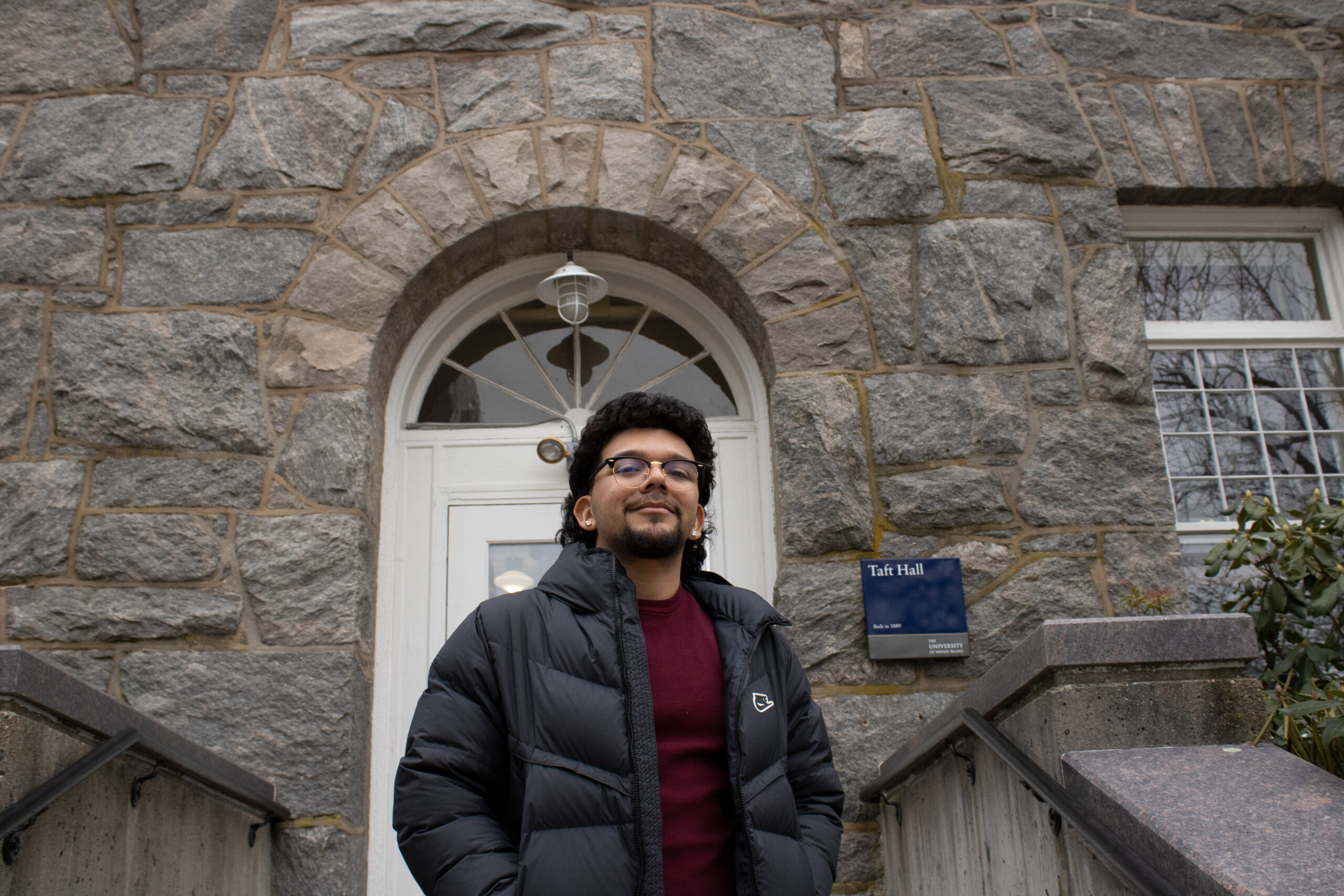Second-year Cristobal Bustos premiers new documentary film
Pictured: Film Student, Cristobal Bustos. PHOTO CREDIT: Eddie Melfi | Staff Photographer
From sports highlight tapes to a new documentary, second-year film student Cristobal Bustos is growing as a filmmaker.
Originally from Colombia, Bustos moved to the United States when he was 5 years old with his family, growing up in Cumberland, Rhode Island. While in his second year in high school, Bustos began filming sports for athletes in Cumberland and the surrounding towns, often making short edits for social media.
“I started recording basketball,” Bustos said. “That was, like, the first way I was like, introduced.”
Bustos explained that his sports video edits were the beginning of his young filmmaking career and that he continues to take motivation from his late father.
“He wanted to put his mentality on to me, you have to grind for what you want,” he said. “If you want something, you gotta like obtain it, you know?”
Since coming to the University of Rhode Island, Bustos has shifted his motivations for the future, moving away from strictly sports videography and transitioning to documentary filmmaking.
“That’s what I’ve been trying to do, like, I want to fade away from sports a little bit because I don’t love sports, I like sports,” Bustos said. “I just want to try something new, and to go into documentary filmmaking.”
Bustos is a film and communication student in the Talent Development Program and is involved in Brothers On a New Direction (B.O.N.D.), a multicultural organization for young men of color.
“The BSLG- A Voice Was Heard!” is Bustos’s first major documentary film project, commemorating the 30th anniversary of the Taft Hall Takeover organized by Uhuru Sasa and the Black Student Leadership Group (BSLG). The takeover of Taft Hall was in response to a misrepresented Malcolm X quote on the side of the Robert L. Carothers Library and Learning Commons. The quote remains on the exterior of the building today.
As the documentary explained, the BSLG and Uhuru Sasa had a list of demands in 1992, including but not limited to, establishing a larger multicultural presence on campus, through counseling, scholarship opportunities and career advising. Bustos began working on his film in August, and finished in November.
Throughout the three month process, Bustos interviewed 12 people, including members of the BSLG and Uhuru Sasa who were present at the takeover in 1992. He also gathered archived footage from the event to add to the film. Bustos was approached by I. Lanre Ajakaiye, a member of the BSLG who heard about Bustos’s filmmaking through his son.
“He saw that I was going to URI and I was a freshman,” Bustos said. “I told him everything. I was doing the Talent Development Program, and he said that I was a good candidate to make this documentary.”
Bobby Britto-Oliviera, assistant director of the Multicultural Student Services Center and mentor of Bustos, highlighted Bustos’s work ethic and dedication to the filmmaking process and the story of the Taft Hall takeover.
“Cristobal taking the initiative and even having an interest in doing this, something that took place well over 20 years before he was even thought of, was commendable for me,” Britto-Oliviera said. “He’s a go-getter, his involvement for social justice, equity, diversity and inclusion is something I really admired.”
Bustos hopes to continue to grow as a filmmaker, and learn more about social justice issues at the University and beyond.
“Something about me is that I want to learn new stuff,” Bustos said. “I want to be able to pick up anything and just make it alive, make it come to life.”

